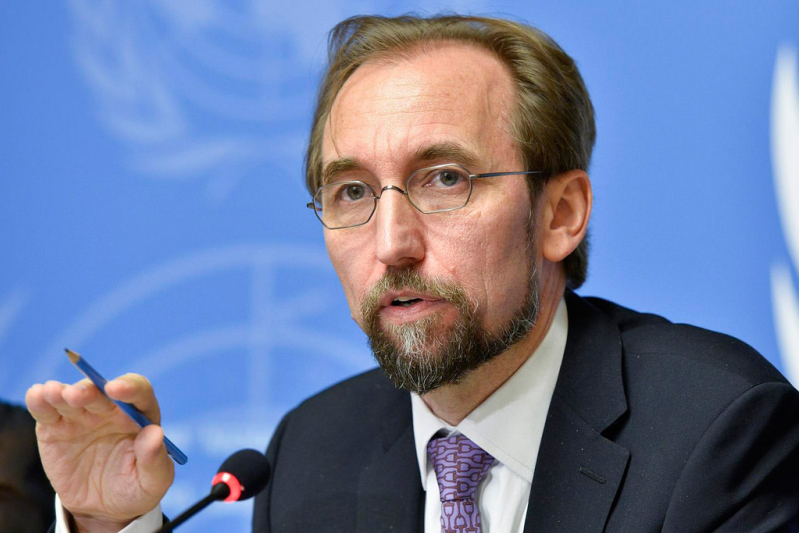
A UN High Commissioner for Human Rights says the bombing of Aleppo may be classified as a war crime, with both pro-regime and opposition groups fighting in a zone "packed with civilians."
On a statement, UN High Commissioner Zeid Raad al-Hussein says, "Any evacuation of the civilians in eastern Aleppo must be carried out in compliance with international law. The Syrian Government has a clear responsibility to ensure its people are safe, and is palpably failing to take this opportunity to do so."
He adds, "The way this deal was dangled in front of this battered and beleaguered population... causing them to hope they might indeed live to see another day... and then snatched away just half a day later is outrageously cruel."
Since 2012 when both pro and anti-Assad forces made Aleppo their battleground, thousands of civilians have been killed and caught in the crossfires. A humanitarian group says five years on since the civil war broke out in 2011, 13.5 million people are now in high need of assistance, 4.8 million Syrians are now of refugee status, and 3 million children are now displaced without homes and families to go back to.
This week saw the height of the battle in Aleppo, ending in pro-Assad forces gaining ground in the area.
Some civilians, in their last moments, brought their fears online. Lina al-Shami, a Syrian activist, shared on Twitter, "To everyone who can hear me, we are here exposed to a genocide in the besieged city of Aleppo. This may be my last video."
Syrian journalist Rami Zien also shares via Twitter, "U guess it's goodbye. Thanks all who stand for us and pay (sic) for us. But it's almost over and they are just hours away of killing us."
But even with UN's outrage with how the battle was fought, British Foreign Office Minister for the Middle East Tobias Ellwood says UN is also at fault with its decision to deny basic support access to Aleppo victims.
Tobias says, "Russia has gone from supporting siege to supporting slaughter. Yet Russia's veto will not prevent individuals committing potential crimes against humanity from being held to account."
He adds, "Data is now being collected through testimonials, social media and aerial technology... So individuals committing crimes against humanity may one day be tapped on the shoulder and held account for their actions."
It is said that Western forces are now collecting data through drones and satellites to gather evidence for the possible trial on a war crime.






